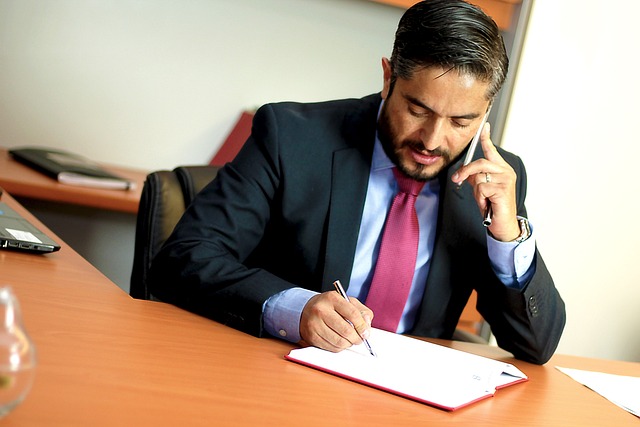Child welfare attorneys in Oregon play a pivotal role in protecting vulnerable children within the complex juvenile justice system. They collaborate closely with agencies like DHS, leveraging their legal expertise to navigate intricate laws and ensure fair representation for at-risk youth facing abuse, neglect, adoption, or dependency cases. Effective partnerships between attorneys and caseworkers, outlined in the state's attorney partnership guide, foster open communication and shared responsibilities, leading to robust strategies that protect children's rights and provide comprehensive support. This collaborative approach results in improved outcomes for Oregon's most vulnerable youth.
In Oregon, child welfare attorneys play a pivotal role in safeguarding the rights and well-being of vulnerable children. This article delves into the essential duties and legal responsibilities of these advocates, exploring how they navigate complex cases to ensure effective representation. We discuss the importance of attorney-client relationships and provide strategies for collaboration. Additionally, we guide readers through building strong partnerships with multidisciplinary teams and offer insights on ethical considerations for child welfare legal experts in Oregon.
- Child Welfare Attorney Oregon: The Essential Role in Protecting Children
- – Defining the role of a child welfare attorney in Oregon
- – Legal responsibilities and duties
- Working with Attorneys: Collaboration for Effective Advocacy
Child Welfare Attorney Oregon: The Essential Role in Protecting Children

In Oregon, child welfare attorneys play a pivotal role in safeguarding and advocating for vulnerable children within the state’s complex child protection system. These legal experts are instrumental in ensuring that every child receives fair representation and access to justice. Their expertise lies in navigating intricate legal processes, collaborating with various agencies, and advocating on behalf of children who may be victims of abuse, neglect, or family conflict.
Working closely with social workers, case managers, and other professionals, child welfare attorneys provide critical guidance and strategic support. Through attorney collaboration in Oregon, they help in developing robust legal strategies to protect children’s rights while also offering a vital partnership guide for effective case management. Their role is multifaceted, involving legal representation, policy advocacy, and educating both the community and fellow professionals about child welfare issues.
– Defining the role of a child welfare attorney in Oregon

In Oregon, a child welfare attorney plays a pivotal role in safeguarding and promoting the rights and interests of vulnerable children within the state’s juvenile justice system. They are legal experts who collaborate closely with various agencies, such as the Department of Human Services (DHS), to ensure that children receive appropriate care, protection, and support. These attorneys work tirelessly to navigate complex legal landscapes, advocate for children’s rights, and facilitate positive outcomes in cases involving child abuse, neglect, adoption, foster care, and dependency.
The collaboration between child welfare agencies and attorneys is crucial for effective case management. Oregon’s attorney partnership guide emphasizes the importance of open communication, shared responsibilities, and mutual respect in this collaborative effort. By working together, these professionals can better understand each other’s roles, ensure comprehensive legal representation, and provide holistic support to children and their families. This relationship is vital in navigating the intricate web of laws and regulations related to child welfare, ultimately aiming to create a safe and nurturing environment for Oregon’s most vulnerable youth.
– Legal responsibilities and duties

Child welfare attorneys in Oregon play a pivotal role in ensuring the safety and well-being of vulnerable children. Their legal responsibilities encompass a wide range, from representing children’s best interests in court proceedings to collaborating with various agencies and professionals involved in child protection. These attorneys are skilled in navigating complex laws and regulations related to dependency, neglect, and family services.
Effective collaboration among attorneys is a key aspect of successful case management. In Oregon, working closely with fellow legal experts specializing in child welfare fosters a robust attorney partnership guide. This collaborative approach enables them to offer comprehensive support to children and families, ensuring that all legal aspects are thoroughly addressed. By fostering strong relationships, these attorneys can navigate the intricate landscape of attorney-client interactions, ultimately enhancing their ability to advocate for the rights and interests of young people in need.
Working with Attorneys: Collaboration for Effective Advocacy

Working closely with attorneys is a crucial aspect of effective advocacy for child welfare cases in Oregon. Child welfare attorneys play a pivotal role in ensuring the best interests of children are protected. Collaboration between caseworkers, social workers, and legal experts is essential to navigate the complex legal landscape and achieve positive outcomes. By fostering open communication and mutual respect, these partnerships can enhance the quality of representation.
Attorneys in Oregon specializing in child welfare have a deep understanding of state laws, regulations, and court procedures related to dependency, guardianship, and other family matters. They work hand-in-hand with caseworkers to gather evidence, interview witnesses, and develop legal strategies tailored to each unique situation. This collaborative approach ensures that the child’s needs are not only legally addressed but also supported by comprehensive social services, ultimately leading to more successful cases and better outcomes for Oregon’s youth.






